|
|
|
Sort Order |
|
|
|
Items / Page
|
|
|
|
|
|
|
| Srl | Item |
| 1 |
ID:
191041
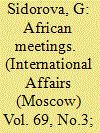

|
|
|
|
|
| Summary/Abstract |
THE myth of the indestructibile primacy of Western countries - former metropolises in world affairs, including on the African continent - is crumbling day by day, proving its groundlessness. The colossus's feet turned out to be clay, unable to stand the test of time. Today, the West is at a loss over Russia's practical steps to strengthen friendly relations with the states of Africa and the East in the name of international security and cooperation for the benefit of all peoples.1.
|
|
|
|
|
|
|
|
|
|
|
|
|
|
|
|
| 2 |
ID:
167491
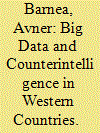

|
|
|
| 3 |
ID:
112813
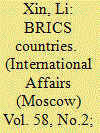

|
|
|
|
|
| Publication |
2012.
|
| Summary/Abstract |
THE MAN WHO COINED the acronym BRIC probably did not even imagine that it would later be filled with real content and would acquire viability. Indeed, the nations that became part of this association are located at the most different points of the planet - in Asia, Africa, Europe, and Latin America. Nevertheless, the development of the economic structures of the BRICS countries has brought about a diversification of the world economy and global market, previously focused mainly on the U.S. and Western countries. In the process of the reform of global economic governance, these countries stand on similar ground; they strengthen coordination of actions and cooperate with each other. These countries are at similar stages of development and tackle approximately the same tasks: economic growth, internal stability and social development. Their advantage lies in the fact that their economies are complementary, which provides a broad field for cooperation within the scope of one organization and with the rest of the world. It is safe to say that the BRICS countries are active supporters and practitioners of global partnership for development and a bridge for North-South dialogue and cooperation
|
|
|
|
|
|
|
|
|
|
|
|
|
|
|
|
| 4 |
ID:
060348
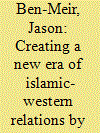

|
|
|
| 5 |
ID:
097242
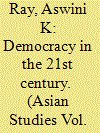

|
|
|
| 6 |
ID:
141550
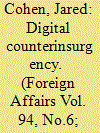

|
|
|
|
|
| Summary/Abstract |
The Islamic State, or ISIS, is the first terrorist group to hold both physical and digital territory : in addition to the swaths of land it controls in Iraq and Syria, it dominates pockets of the Internet with relative impunity. But it will hardly be the last. Although there are still some fringe terrorist groups in the western Sahel or other rural areas that do not supplement their violence digitally, it is only a matter of time before they also go online. In fact, the next prominent terrorist organization will be more likely to have extensive digital operations than control physical ground.
|
|
|
|
|
|
|
|
|
|
|
|
|
|
|
|
| 7 |
ID:
129198
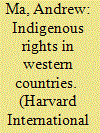

|
|
|
|
|
| Publication |
2014.
|
| Summary/Abstract |
The Canadian government has always tried to maintain Canada's reputation as a beacon of democracy and of a model of social contract theory. But James Anaya, the United Nations' special rapporteur on indigenous rights, may be challenging the impeccable Western democratic image that the international community has so liberally applied to the United States' northern neighbor.
|
|
|
|
|
|
|
|
|
|
|
|
|
|
|
|
| 8 |
ID:
109182
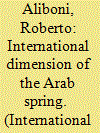

|
|
|
|
|
| Publication |
2011.
|
| Summary/Abstract |
The Arab spring is a transition away from the long alliance between the West and the moderate Arab states, as well as a transition on the part of these states from being more or less passive clients of the US and the West to more or less vibrant democracies with an assertive agenda in the region. As elections take place, they will generate more democratically and Islamist-based governments, certainly more sensitive than previous ones to nationalist feelings and with foreign policy objectives more or less diverging from Western ones. This compels Western countries to revisit and possibly adjust foreign strategies and policies. In this perspective, American and European policy towards the Israeli--Palestinian conflict in recent years may remain a stumbling block in the West's relations with the Middle East and may make the ongoing process of political change in the region more difficult and uncertain.
|
|
|
|
|
|
|
|
|
|
|
|
|
|
|
|
| 9 |
ID:
091395
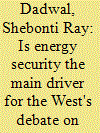

|
|
|
|
|
| Publication |
2009.
|
| Summary/Abstract |
Though global warming and climate change is a real concern and needs to be addressed, it is concerns over energy security that are driving the West's policy and debate on climate change. With the traditional oil and gas market changing in favour of the developing countries, the developed countries are concerned about retaining their preferential access to energy resources. Consequently, they are applying pressure on the emerging economies to cut down on consumption of fossil fuels on the grounds of reducing carbon emissions, whereas their own energy policies indicate that their dependence on fossil fuels, including coal, will continue.
|
|
|
|
|
|
|
|
|
|
|
|
|
|
|
|
| 10 |
ID:
120431
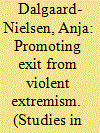

|
|
|
|
|
| Publication |
2013.
|
| Summary/Abstract |
A number of Western countries are currently adding exit programs targeting militant Islamists to their counterterrorism efforts. Drawing on research into voluntary exit from violent extremism, this article identifies themes and issues that seem to cause doubt, leading to exit. It then provides a perspective on how these natural sources of doubt might best be brought to bear in connection with an exit program by drawing on social psychology and research into persuasion and attitude change. It is argued that an external intervention should stay close to the potential exiter's own doubt, make the influence attempt as subtle as possible, use narratives and self-affirmatory strategies to reduce resistance to persuasion, and consider the possibility to promote attitudinal change via behavioral change as an alternative to seek to influence beliefs directly.
|
|
|
|
|
|
|
|
|
|
|
|
|
|
|
|
| 11 |
ID:
192469
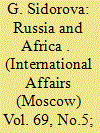

|
|
|
|
|
| Summary/Abstract |
THE holding of the second Russia-Africa Summit in July 2023 in St. Petersburg amid the tough confrontation between the West and Russia was a true feat of Russian diplomacy. The preparation of such a large-scale and significant event required a lot of effort from Russian foreign policy officials. Consistently and convincingly explaining, without typical Anglo-Saxon hysteria and fabrications, Russia's position on international issues, including the Ukraine crisis, and winning African countries over to Russia, which is extending a helping hand to the continent that is home to almost 1.5 billion people, is painstaking and at times exhausting work that remains behind the scenes against the backdrop of positive changes.
|
|
|
|
|
|
|
|
|
|
|
|
|
|
|
|
| 12 |
ID:
145902
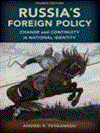

|
|
|
|
|
| Edition |
4th ed.
|
| Publication |
Lanham, Rowman and Littlefield, 2016.
|
| Description |
xxx, 305p.: tablespbk
|
| Standard Number |
9781442254022
|
|
|
|
|
|
|
|
|
|
|
|
Copies: C:1/I:0,R:0,Q:0
Circulation
| Accession# | Call# | Current Location | Status | Policy | Location |
| 058711 | 327.47/TSY 058711 | Main | On Shelf | General | |
|
|
|
|
| 13 |
ID:
116168
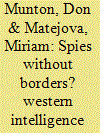

|
|
|
|
|
| Publication |
2012.
|
| Summary/Abstract |
Iran's Islamic Revolution and the takeover of the United States embassy in Tehran in November 1979 was America's and the West's first encounter with contemporary radical Islam. It prompted substantial intelligence cooperation amongst Western countries. Their liaison included not only the collection of human intelligence (Humint) but also an effort to protect six Americans who had escaped becoming hostages, and then a successful covert exfiltration operation to secure their escape from Iran. Canadian embassy staff, assisted by CIA experts, mounted this operation in late January 1980. We use the Iranian Revolution and occupation of the American embassy in Tehran both to flesh out the nature of contemporary Western Humint cooperation and to highlight the intelligence activities, including international intelligence liaison, of Western foreign ministries.
|
|
|
|
|
|
|
|
|
|
|
|
|
|
|
|
| 14 |
ID:
104372


|
|
|
|
|
| Publication |
Santa Barbara, Praeger, 2010.
|
| Description |
186p.
|
| Standard Number |
9780313384448, hbk
|
|
|
|
|
|
|
|
|
|
|
|
Copies: C:1/I:0,R:0,Q:0
Circulation
| Accession# | Call# | Current Location | Status | Policy | Location |
| 055969 | 320.557/CLA 055969 | Main | On Shelf | General | |
|
|
|
|
| 15 |
ID:
039699
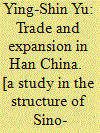

|
|
|
|
|
| Publication |
Berkeley, university California Press, 1967.
|
| Description |
ix, 251p.Hbk
|
|
|
|
|
|
|
|
|
|
|
|
Copies: C:1/I:0,R:0,Q:0
Circulation
| Accession# | Call# | Current Location | Status | Policy | Location |
| 002842 | 931.04/YIN 002842 | Main | On Shelf | General | |
|
|
|
|
| 16 |
ID:
104081
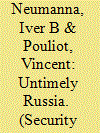

|
|
|
|
|
| Publication |
2011.
|
| Summary/Abstract |
This article draws on Pierre Bourdieu's sociology to explain how a lack of fit between a repertoire of bodily practices accumulated through history, on the one hand, (here, Russian habitus) and the field in which it is employed, on the other, (here, diplomacy) can take shape in world politics. Such "hysteresis" provides a longue durée reading that challenges both the realist idea that similar outcomes are due to invariant structures and the constructivist idea that structures "socialize" states. Social stability stems from agency, more specifically, from habitus. Our empirical examples are breaking points in Russian relations with neighbors: the Rus' and the Eurasian steppe empires (ca. 800-1500), Muscovy's diplomatic interactions with Europe, and Russia's bid to join European international society and situation during the twentieth century. In each case, Moscow's relentless quest for equal status prompted quixotic practices that were often dismissed by Western countries and hampered the security of both parties.
|
|
|
|
|
|
|
|
|
|
|
|
|
|
|
|
| 17 |
ID:
085441
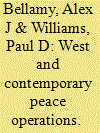

|
|
|
|
|
| Publication |
2009.
|
| Summary/Abstract |
In recent years, senior UN officials have raised concerns about the decline of Western contributions to UN peace operations. Although this is a worrying trend for supporters of the UN, it does not mean that the West is playing a smaller role in peace operations per se. Instead, the West has increased its contribution to `hybrid' peace operations and missions that take place outside of the UN system. This article examines the West's contribution to both UN and non-UN peace operations since the Brahimi Report and assesses whether its contribution has markedly changed and what impact any changes have had on international peace and security. It proceeds in three sections. The first provides a historical overview of the West's ambivalent relationship with UN peace operations since 1948.
|
|
|
|
|
|
|
|
|
|
|
|
|
|
|
|
| 18 |
ID:
186661
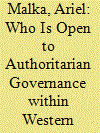

|
|
|
|
|
| Summary/Abstract |
Recent events have raised concern about potential threats to democracy within Western countries. If Western citizens who are open to authoritarian governance share a common set of political preferences, then authoritarian elites can attract mass coalitions that are willing to subvert democracy to achieve shared ideological goals. With this in mind, we explored which ideological groups are most open to authoritarian governance within Western general publics using World Values Survey data from fourteen Western democracies and three recent Latin American Public Opinion Project samples from Canada and the United States. Two key findings emerged. First, cultural conservatism was consistently associated with openness to authoritarian governance. Second, within half of the democracies studied, including all of the English-speaking ones, Western citizens holding a protection-based attitude package—combining cultural conservatism with left economic attitudes—were the most open to authoritarian governance. Within other countries, protection-based and consistently right-wing attitude packages were associated with similarly high levels of openness to authoritarian governance. We discuss implications for radical right populism and the possibility of splitting potentially undemocratic mass coalitions along economic lines.
|
|
|
|
|
|
|
|
|
|
|
|
|
|
|
|
|
|
|
|
|